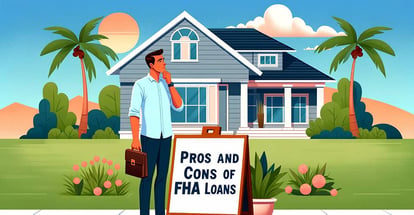The Pros and Cons of Co-Ownership
When home prices skyrocket, it can make more sense to combine resources with others to buy a property. A new economic trend called "co-ownership" is forming.
Adhoc co-ownership happens when two or more people pool their money and buy a house together but don't take on the responsibility of a traditional partnership.
This is more of a contractual agreement that allows for precise asset allocation based on how much each person contributes towards the purchase.
Types of Residential Co-Ownership
The term "co-ownership" describes the relationship between the owners. In a co-ownership arrangement, each owner has an undivided interest in the whole property. Co-owners may or may not pay equal shares of expenses, but they share both responsibility for and access to the property.
Equity sharing
There are typically two parties involved in shared equity financing: the homeowner and the investor. Investors provide cash for down payments or to unlock equity in the home; however, homeowners live in the home and invest their time into upkeep. Traditional bank mortgages are also used in most cases. After the term expires, the homeowner either buys out the investor or sells to another buyer on their own initiative.
Joint ownership
In this case, the property is owned jointly by more than one person, and they each live in the property. The co-ownership agreement between co-owners governs their mutual rights and obligations in relation to the property they have jointly purchased.
It specifies who is responsible for paying utility bills, making repairs, and carrying out other maintenance work. It also determines who has what percentage of ownership (for example, whether one person owns 25% of the house or whether each person owns 50%).
The Pros of Co-Ownership
-
Being a home co-owner is cheaper - Each member of the home co-ownership pays their own deposit. When you are a member, you only pay one deposit instead of two. This means that there will be no deposit costs for you and your family.
-
You can buy a bigger home than you could afford if you were buying it by yourself - When you want to buy or build a house, in case the money is not enough to buy the house alone, being a member of the co-ownership is better because it allows you to share the cost with other people.
-
You can become debt-free faster - A debt-free life is considered one of the most important desires of every man and woman on the planet. You will avoid paying extra money every month through your monthly bills and thus save more money by becoming debt-free.
- It can reduce your monthly payment - Monthly payments can be reduced if each member shares the payment with another person. When your payment is divided into more parts, each part will be smaller, which can help you lower your monthly payments.
The Cons of Co-Ownership
-
One party may go bankrupt and fail to make repayments - When you buy a property in joint names, each party is equally responsible for making repayments on time – even if one goes bankrupt or can't afford their share. This means that if one owner goes bust, it could affect you and them. You face losing your investment if you don't have insurance or sufficient savings to cover the cost of paying off the entire mortgage yourself.
-
Co-ownership agreements can be complicated - You'll need to take advice from a solicitor before buying into one to make sure that you know exactly what you're signing up for.
-
Repairs - If one co-owner does not pay for repairs to the house, it is not clear who will pay for them. Will the cost be divided evenly between owners? Will one of them have to make all of the repairs? This can lead to arguments between owners over who should pay for what.
-
Legal problems - Homeowners can sue each other over noise, property damage, or taking care of the lawn and garden.
-
Taxes and insurance - All of the costs of owning a home must be paid by someone, so if one party fails to pay their share of these costs, it can result in legal problems like tax liens and foreclosures.
- Co-ownership disputes - Homeowners may want to change their house that their partner does not agree with or wants to do different things with their property than their partner does.
Structuring a Robust Co-ownership
Before you buy a property with a partner, it's crucial to set up a relationship that can stand the test of time.
If you are considering a live-in co-ownership, the first step is to test the waters. Live together before entering into a formal agreement to purchase the property. That way, you can avoid getting locked into an arrangement that doesn't work for either party.
Next, consult an experienced lawyer to draft a comprehensive co-ownership agreement. The agreement should cover:
-
Dispute Resolution – How disagreements are handled and what happens if one party wants out of the co-ownership;
-
Financial Agreement – How the costs of purchasing and maintaining the property are shared;
- Property Improvement – What happens when one party wants to add an addition or renovate the property.
Takeaway
Co-ownership can be an excellent approach to homeownership. However, you need to critically look over both sides before making a decision.
With over 50 years of mortgage industry experience, we are here to help you achieve the American dream of owning a home. We strive to provide the best education before, during, and after you buy a home. Our advice is based on experience with Phil Ganz and Team closing over One billion dollars and helping countless families.

About Author - Phil Ganz
Phil Ganz has over 20+ years of experience in the residential financing space. With over a billion dollars of funded loans, Phil helps homebuyers configure the perfect mortgage plan. Whether it's your first home, a complex multiple-property purchase, or anything in between, Phil has the experience to help you achieve your goals.


 By
By  Edited by
Edited by 






